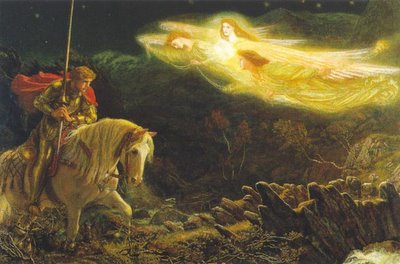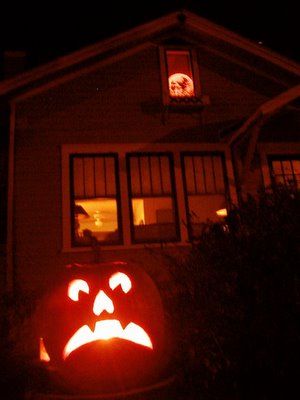Nekyia With A Porpoise
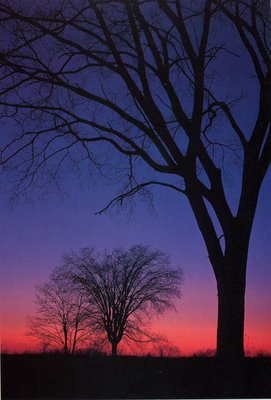
The shaman begins his new, his true life by a “separation” -- that is ... by a spiritual crisis that is not lacking in tragic greatness and beauty.
-- Mercea Eliade, Shamanism: Archaic Techniques of Ecstasy, 12
***
This post is a bit about dark harrows, the danger of going there, the madness down under, what one learns there in the dissembling cauldron of acid nights, what returns ...
***
Yes to wild dark; yes to the booming antiphons of great, massy, finned, crest-and-smash-and-spume Lir; yes to the theurigic magic of divine lucence, to all that shines in darkness; yes to Ahab’s “the right worship is defiance”; Yes to “a bold and nervous lofty language” (Melville) which transports the shaman-poet to the depths of the world-in-word, to the realm of brute ancient vital totems, the cathedral at the bottom of the heart: Yes, hosannah and amen to all that:
And yet ...
Do not confuse or terrorize the life with it ... never think you can fall that way in life again ...
It is meet to temper the exhilaration of wild black broodings by recalling its stain of my own biography. Tuesday night driving home in heavy rain, dark now at 6 p.m. in the heavy arrears of the year, traffic on 441 slogging through downtown Apopka bleary and wet, fractured light through my car windows mi xing with the sounds of Lyle Mays’ Solo on the CD player, a perfect ache of the ivories resounding in black-ebony plush, tearing some old wound and flooding me bloodlike with memories of old sodden days, of my long futile ache in boozy wallows:
And so I recalled that mind which is still mine which then sensed all these deeper divinities yet was melancholy, so blue, sometimes suicidally so, as if to live another day was to be forced to climb back on the cross and bleed the world away anew and then crabble to the bar to drink the world to dregs ... The freight of that ache when it seeks mortal beds for it, all too impossibly far away ...
I think of Melville the drunk who died falling down the stairs, all his work come to absolute naught, Moby Dick his gnostic gospel wholly reviled by critics and then forgotten like a book tossed down the Pequod’s wake: ah such clarity and wildness of soul produced that wonderful book, but the heart which devled those words proved too dark for its creator ...
In Chapter 112 of Moby Dick we are told the story of the Blacksmith Perth, a bent, old, horribly beaten man whose charred past still smouldered in his eyes; on land he had once been a good family man, but misfortune and “the Bottle Conjuror” had sucked away his goodly godly humour, leaving the rock-bottom man for whom whaling is most suited; he is Ahab’s shoreside familiar, Melville’s fallen Christian soul perhaps, the wrack of insufficient lucence, how booze will get ya if yer God isn’t big enough ...
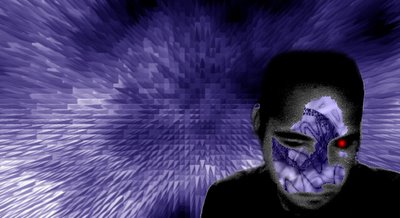
Death seems the only desirable sequel for a career like this; but Death is only a launching into the region of the strange Untried; it is but the first salutation to the possibilities of the immense Remote, the Wild, the Watery, the Unshored; therefore, to the death-longing eyes of such men, who still have left in them some interior compunctions against suicide, does the all-contributed and all- receptive ocean alluringly spread forth his whole plain of unimaginable, taking terrors, and wonderful, new-life adventures; and from the hearts of infinite Pacifics, the thousand mermaids sing to them - Come hither, broken-hearted; here is another life without the guilt of intermediate death; here are wonders supernatural, without dying for them. Come hither! bury thyself in a life which, to your now equally abhorred and abhorring, landed world, is more oblivious than death. Come hither! put up thy grave-stone, too, within the churchyard, and come hither, till we marry thee!
Hearkening to these voices, East and West, by early sun-rise, and by fall of eve, the blacksmith's soul responded, Aye, I come! And so Perth went a-whaling. (Chapter 112)
***
In lieu of Lir there’s Launcelot, the Man of Action, for whom reflection serves no quest; there is no hesitation for this man between scabbard and flashed sword, or zipper and rude pecker; Action is the eternal antidote to Thought, the literal enactment which dispenses with literary treatments. Sorry Charlie, we don’t want tuna with good taste, we want tuna that stains our chops with sweet meat. Of course the wild dark is thronged with banshees and savages, wild-eyed revenants with filed teeth: Of course their purposes are bloody: Every night it ends with them tearing at some prey in the saddest place in the world, heads out of view in entrails whilst the victim’s faded eyes stare off. The bloodlust is horrible and washes deeply through the heart; sometimes I wonder if the ache for perfect communion is just a psychic sweetener which justifies the baser hunt; if every act of tenderness does not bare canines somehow -- terrible and mad to think that way, but that’s what froths in the mix when I flash a light down here ...
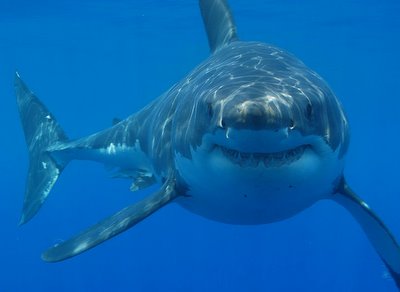
The gods fare better with this shit than we do ... We must wear suits of armor, heading down so deep ... In Goethe’s Faust I, when Faust cries aloud to Mephistopheles his grief and rage over the predicament he has gotten Gretchen into with his desire (he kills her brother and she is imprisoned, sorrowing, in her room), he is oh so sorry for have wished to ride upon the back of so great a dragon: Mephistopheles scowls,
Now we are again at our wits’ end where the
reason of you mortals snaps from overstretching.
Why do you enter into fellowship with us, if you
cannot carry it through? Will you fly and are
not save from dizziness? Did we force
ourselves on you, or you on us?
(“A Dismal Day,” 23-8, transl. George Madison Priest)
Faust thought the great powers were as bright as his studies, and is revolted to see how destructive they are:
Great, glorious Spirit, Thou who didst deign to
appear to me, Thou who knowest my heart and
my soul, why fetter me to the infamous comrade
who feeds on mischief and slakes his thirst in destruction?
(ibid 27-30)
A quandry of eros and thanatos, perhaps. Can there be theurgy with love, Ahab blessing the white whale, loving its nature? Or does that humanize the limbic veld too much, replacing mythology with biography? No: Eros was there at the beginning: It is he who drives this pen towards the vastiest deep, longing for reunion and commingling of the vital fluids: Between Lir and me is a heart, though filled with angels and devils: Between this work and my life is my heart, where I soon will shut off the computer, clean up, and go lay in bed next to my wife, in love with the absolute ordinaries of day, its little rituals, its human furnishings, its literal comforts.
Dragons just beyond the margins of this copy, brutal, incessant, infernal, sexual, wild: I dare not go to deeply there, and yet I must: My feet walk on fishes, “hovering up, hovering down, bending low, bending down” (Faust describing the witches who “weave” “round the Ravenstone”, 4001): Then stepping off to shore where my Beloved groans, yawns, scratches, wakes, offering her feet to me to stroke, slowly, lightly, gently, eternally.
WELCOME TO THE ABYSS
2001
Since no animal can make its own food,
the creatures of the deeper waters live
a strange, almost parasitic existence
of utter dependence on the upper layers.
These hungry creatures prey fiercely and
relentlessly upon each other, yet the whole
community is ultimately dependent upon the
slow rain of descending food from above ...
— Rachel Carson, The Sea Around Us
Whom filth plenished,
dearth devoured.
— Joyce, Finnegans Wake
Here in the abyssal
developments
the roads are paved
by an incessant rain:
berserkers in
their broken
boats, pirates whose last
word was “whoops,”
victims of exploding
airlines descending
smaller to us from
much higher up.
We eat what we can.
The road through
our small world
is pure defecation and
inedible, indelible bone.
In our neighborhood
it’s too dark to know
a face, but if you could
you’d be sorry.
We all have eyes
like extra-large
pie-plates and
huge jaws for catching
what we can.
Our diet’s
rounded with the
leavings of the leavings
of the leavings, and
less, a bite of
tiger shark, finger
of a gunman.
Oh how we dine
on all perdition.
Not much to see
round here but
the music never stops:
weird moans, trills,
clicks, and clatters
fill our nocturnal air,
a radar for appetite
and procreation.
We breathe the
inkiest of drink,
so dark and cold
and dense to be
the very heart
of the nihilist.
An edible grave.
We descended
seeking a little
elbow room in
a food chain too
tightly knit: grew
strong in our
abysms. We’ll live
forever since
everything you say
eventually falls
our way.
Welcome to the
Final Receipt, resting
place of all, Turd ‘Burb,
last house on the block
where we seize with
hungry jaws the
bitterest of God’s laws.
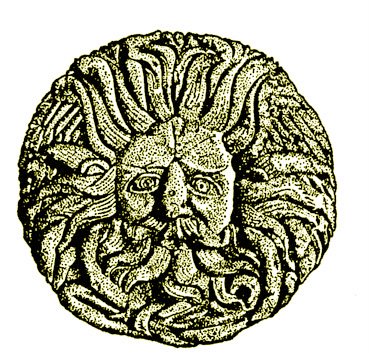
THE WORDS WHICH GOT ME HERE
from A Breviary of Guitars,, 1999
1.
July 1999
At my sister’s
last night for
to celebrate
my mother’s
and my birthday:
Her kids
all earnest
love and purpose,
breathlessly
offering hugs
and wedging
onto my lap
as I tried
to talk with
my mother.
Kathy weaving
through the
mayhem with
her camera
taking pictures
(at 10, she’s
gotten pretty good)
and Nicholas
in his room,
the eternally
embarrassed
teenager. Then
at the table
with my sister
& her husband Jim,
my mother, her sister
Flossie and
Uncle Frank,
cousin Carol, my
wife just in from work:
All of us making
short work of
roast turkey,
carrot casserole, my
mega salad
(green beans,
roast potatoes, grape
tomatoes, spring greens
and Dijon-
garlic-balsamic
vinegar vinaigrette),
finishing off with
Uncle Franks homemade
lemon icecream:
The kids at the
other table
nibbling and giggling,
trying to be quiet:
while us adults
tried to update
the past 6 month’s
swing of life:
Frank and Flossie’s
trip to Guatamala
making efficient stoves
for Mayan Indians
(saving rainforest);
Carol’s cats
(including a
sad tale of Lucky
who died at
just 8 months);
mys sister & her
family’s trip
to a cabin
in Georgia: my
wife’s labors
in her booth;
my mother’s
hard days tending
a mean old blind
woman; my own
creative digs
of design for auditors,
writing reviews,
versifying so
excessively here:
We move on to
absent siblings’
lives, houses
and illness and
career changes,
funny anecdotes
about grandchildren:
As usual the
subjects hold for
a sentence or two
before the next one
passes round the
table like a plate
of second helpings:
We’ve done this for
so many years
now, in marriage and
divorce, kids
sprouting out of
diapers clutching
dolls in and
then huddling
behind doors with
the music pounding
away: Each gathering
now is a harvest
of more growing up
and us always
somehow older,
quieter, treasuring
what we always
find here together
(we swear upon
departure that we
just have to do
this more often):
A way to age,
perhaps, which looks
at all the
impatient striving
we do on our own
(Frank with his
new knees at the
gym, Carol
managing schizophrenia,
my wife so
battered by
her nephew’s death)
—and smiles.
2.
Spring 1978
Back in late
Winter ‘77-78
I knew none
of this. I woke
mornings watching
my breath frost
up into the gloom
of dawn as the
first glints of waking
pierced a fog
of dope and beer and
days lost to figurative
descents. Cheap instant
coffee and a cigarette,
a journal opened
blankly waiting for
what little I could
summon up to say.
That was what
wintering was
like before I learned
about wintering
without a woman:
Before I left
my metaphoric home:
My winters then
where when my
parents battered me
with their
love and icy ills.
I mean from the
barrows a parent
digs blindly
in their child &
which the child
spends the rest
of his life
digging out from:
Some never emerge
and the rest of us
maybe halfway:
My mother
was in Florida
in a world of hurt
and my father
back East too
creating New
Age symphonies,
yet my remove
in far Spokane
seemed hardly far
enough: my own
sense of self
like a fragile tangle
of weeds tumbling
between those inner
ranges called Mother
and Father: My
mother’s love
blocked by a fury
with my father
turned voraciously
inward into a
moody dark deep
& soured by
a fundamentalist
cant I had
fallen deeply
away from: My father
a looming self &
utterly possessed
with mission and making,
his Presbyterian
beliefs composting
in a gay New Age
garden: These were
not your parents?
It doesn’t matter:
Names yours
and you’ll have
one part of
your story:
3.
I’ve always been
one of little faith,
and winter hard
outside the breasty
embraces of the sun:
Back in Spokane
I have no
life to return
to, none that feels
in any way
comparable to
the magic wealth
of my father’s
house, imagination,
and making: Instead
I have cold
cold dingy rooms
of a rented house
just off campus,
littered with
the detritus
of party boys.
A few books,
a journal, a pen,
studies that spring
in writing poetry
and modern
music, that
white Strat
leaning against
my amp. It all
feels like nothing,
of so little
consequence
or importance that
I spiral into
that vacuum
I had formed in
giving up so much
ground to my father.
Playing that white Strat
at night with frost on
the window and the music
and icy sort of jazz,
inarticulate ditties
of loss and despair.
The IsoSoul,
I called him,
a man trapped inside
a boy, a mask of
torpor unable to
reveal myself
to the world.
Being bereft
of Becoming
means impotence
and self-rage.
I sat in classes
looking up from
that dank well,
invisible, seething.
Dope stems
and empty beer cans
and the world
just going on
in the bleak
half-light
of a life half-lived.
Cheap instant
coffee and a
cigarette, Fripp
& Eno’s Evening
Star: a cheap
blue journal
in which I
scrawled my
lines of poetry:
My mother has her secret looks,
and my father, his secret-books.
I could have put my side to sleep,
pulled back the velvet curtains
of the deep, in short, closed the show;
But snow is melting from my eyes,
and pine trees rise triumphant to the sun.
The time of knowing’s past.
It’s a season for the feet.
Pure Roethke, I know:
I was infected
with his song,
that way he turned
a line into pure
music: Ted
my idol, the
singing bear:
--oafish and
achingly clear
about beautiful
sonorous things.
Mad too: But
that was a damned
sight better than
Sylvia Plath, my
darker muse
those days,
whose “Moon
and The Yew Tree”
scared me for
being so close.
O sweet allure
of “blackness and
silence.” Aged
19 and alone,
post-Christian,
back again
in college but feeling
so profound a
need to write
of off-campus,
living things
I knew so little of --
and isolate,
unable to speak
around others,
alone much of
the day and night
and next day
and night: Finding
words in
ways that
were finally
boats for
crossing great
waters--saying
things at least
on paper well
enough to
suggest an
encounter with
the world
that sufficed:
Still awkward
and inept
everywhere else
—love’s oaf:
A boyman who
had to live
those days
before he could
later sit at the
table surrounded
by so much
joyous family:
That boy who
chased and lost
a music into
this great
sea of words
in getting from
there to here:

DEEP SONG
2002
Deep in the body’s hollows
between bone transept
and gut nave, chilled in
the stone marrow of our lives,
there breathes a ghostlike,
garbled presence, half fish,
half horse, a hoarder of
old treasure in the
soul’s aphotic keep.
Here is the ur-father,
demi-dad, a galloper
on crest and surge,
a man’s man with
boulders for boots
and a cudgel for a cock.
Prime and primeval,
he’s balled down
there in the world’s vesicle,
his white magna
balled in every vowel.
When my words
revise to this line
they sink down to him
like skipped stones
at throw’s end
to irritate the shit
outta him (and you
don’t want to
piss off god whose
horse shits Texans).
His art is rimmed
with basalt keels,
the deep end of all ceasing:
to me this cry,
this ravening song
eared from stars
and poured deep.
For me the spear plunge;
for him, the feasting.
L’AMOUR BLEU
from A Breviary of Guitars, 1999-2000
Winter 1984:
“Sadness is not
the whole of it,”
Hillman again
in “Blue:”
“A turbulent
dissolution
of the nigredo
can also show as
blue movies,
blue language,
l’amour bleu,
bluebeard, blue
murder, and
cyonotic body:
When these sorts
of pornographic,
perverse, ghastly,
or vicious
animus/anima
fantasies start
up, we can place
them within the
blue transition
toward the albedo:
Then we can
look for bits
of silver in
the violence:”
Blue guitar
scything a
silver wake:
My spade
haft-deep
in shitty days
of pissy
tantrums &
drunk fucks:
That blue Hamer
Phantom
was both sheild
& sword of
the frosty
ghosts in
my heart: I
worked on songs
for hours, practiced
leads, hammered
salvos of chords
articulate in
the rage and
heartbreak I
could not find
words for: Used
my ex-girlfriend’s
gift to sing
her curses:
There in that
tiny bedroom
with just a
mattress & a
scatter of rumpled
cocksure
fineries &
winter bearing
down on the
windows cold
as a witch’s
cunt & lit
by a fugitive
moon which ravaged
the frets of
that blue blue
guitar: All of
me narrowed to
that inch and
a half of neck
stretching from
her body inside
that Hamer
out to the
void: When the
rhythms were
succinct my
heart galloped
on hooves
of angry fire
or collapsed
in a single
wrenching sob:
When I failed
to find the
teeter between
craft and flight
those windows
shattered & cold
cold lunar night
drowned me:
I was jerking
that guitar off
in mimesis
of some anti-
orgasmic flight,
a backwards plunge
from her blue
poisoned womb
down her sweet
briared furrow
to sprung up
in volcanic
fire into the
evernight of
refusal: Bereft
of the band
I had forged
and then of
the forgeries
of True Love
I was left with
only a
personal
poisoned shell
emptied of
all identity:
A freezing
guitar-shaped
pond encased in
a icy blue
case locked shut
against any
real grief, any
forward movement
beyond the moon
of loss to what
always follows:
That winter was
truly bad but
it was also
the alembic
out of which
formed my last
band, my last
songs: AA and
therapy wrote
it off too
quickly as
the Pit of
the Bottle and
the Mortis
of Compulsion
so the dolphin
drives me back
to find a vigor
and joy in
icy waters:
“There are
patterns of
self-recognition
formed by means
of horror and
obscenity,” Hillman,
“Blue:” “The soul’s
putrefactio
is generating
a new anima
consciousness,
a new psychic
grounding that
must include
underworld
experiences of
anima itself:
Her deathly and
perverse
affinities: The
dark blue of
the Madonna’s
robe bears many
shadows, and
these giver her
depths of
understanding:
Just as the
mind made on
the moon has
lived with Lilith
so that its
thoughts can
never be
naive, never cease
to strike deep
toward shadows:
Blue protects
white from
innocence:”
Son of love,
discover what
that arrow
that pierces
your heart
is truly aiming
for: Not
heart but the
art of
transfixion
& transfiguration:
The songs which
spilled out
of my broken
heart were inked
in the halcyon
stillness of
bitter winter
night, a
Fomorian breath
inside the
god Oran descends
to: Love is
never about
the Beloved
nor the boy
who just wishes
to Be Loved
but rather
about the icy
hot bolt fired
from afar by
an indifferent
cloudhopper:
Split wide, my
mouth bleeds
song: That
love doesn’t
want my health
or wholeness
or spiritual
good: It wants
to rivet me
to the back of a
silver dolphin
diving into
Norweigian
waters in a
bolt of black:
After I’ve sung
my verses it
will throw
me aside to age
& die while it
swims on through
the rest of
the world firing
lethal arrows
into unsuspecting
sudden lovers:
And on it goes:
The music of
those days
plays on in me
like a ghost
in my heart:
John Waite still
grabs me in
that killer
diller song “Forget
Me Not” he
sang with Bad
English: I will
be your keeper /
Your possess the
key / Forget me
not / Forget me
not / Cause you
belong to me / I
will be your
shadow / when
you walk away /
Forget me not /
Forget me not /
I will follow
you / Until your
dyin day: Such
is the ice hell
of eternal love:
My ex was long
gone to whatever
loves & losses
that made
& shattered
her but those
memories
forgive none
of their fire
& I carry along
ghosts like her
and other
doomed loves
like skulls
on my belt
or guitars
slung forever
over my shoulder:
That my worst
days & nights
are laid at
the altar of
love means
the devotions
were real although
the ablutions
were insufficient:
O blue robe of
the priestess
who impales me
with my own
dick pen guitar:
You are quite
a babe one
I may never
survive:

OK, the process of writing “Breviary” -- an autobiography of song, as it were, pieced together by guitars -- ended in a bad collapse. Did I write my way back into the old bad woods, or did I make the awful error of taking the numens far too literally. This poem was written shortly after I finished that long, unpublishable work, when I was far too literal in my littoral embrace of Lir. What did I expect?
CRUEL FISH
August 2000
Finned monster
from dark deeps
I fear to swim:
Making and
breaking my
heart with an
arrow’s pierce
& a departing
wave: You don’t
give a shit
about the sighs
you compose
in me nor
the lives which
decompose
in your wake:
How many times
have you
startled me
alive with
a woman’s
citrus blossom
smile then
shipwrecked
me for letting
my own
arrows fly?
How you
gloated over
the awful
minutes that
dragged to
eternally once
I lost myself
in her wood
& pined til
Doomsday
for her next
embrace:
How you
strutted like
cocky Achilles
on the waters
I drowned in
after she walked
away: O and
that miserable
dry dock
of empty
& motions
I employ to
recover from
you, telling
myself it was
all a lie,
a mania, mere
biologic ruse —
When I
grow smug
in my fresh
knowledge
and return
confident
to the day
then blam,
a wave crests
the sun
and you emerge
in a woman
barbed in your
cunning bow
to nail this
prince of
infidelity:
Then what?
All else is
impossibility:
Guilt, prayers,
relapse, grinding
desire, the torture
of minutes,
more guilt, hard
talk, loathing
to close the
door yet ever
demurring to
walk through it:
If I am your
son, then what
is my task? Must
I hurl up
waves of poems
taller than
my father’s stones?
Find motions
of ink which
bear the easy
slide & slish
of your finny
release?
And this
as every son
who knows deep
within he can
never truly
measure up
to the father:
Nor live a
life defined
by filial war:
What does it
mean to simply
accept the
father’s blessing
& curse &
just go on?
How to be
true to a nature
that loves to
hide? How to
love a cruel
mother sea
where is
tidal appetite?
How to ride
a dolphin’s
muse wherever
she trills & wills?
Look: I’m neither
smart nor
ballsy enough:
Just a big
sweet kid who
loves a wanton
peek & sniff:
But you have
bid me build
this towering
aerie where
all is safe
without so
you can gambol
within: It makes
for a very
boring life:
Heart in
service of
art is dry
& bloodless
indeed: My
wife & I
rarely fuck
but we conceive
new loves
& labors every
day: So why
are you
trumpeting to
me with the
jawbone of
an ass? Why
call me beyond
the pale of
what you would
have me sing?
Here I am
bent in half
trying to mortar
what goes beyond
passionate singing
& you belt me
with the most
passionate singing
of all: I know
it’s no use
crying Foul
but today I
wonder if I
was meant to
leave you behind:
Let the angel
go & grow
into a deeper
less sexual
mania: Trade
wave for wind:
And pace off
new territories
of sin: Or,
perhaps you’re
just reminding
me that the
way I think
it moves is
not the very
fish at all:
Each new poem
asks me to
let go in some
new way: So
too the life:
Upper and
lower worlds
are mirrors
of the other
but they’re
incompatible
in any other
way: Free here
walled there:
Angel above
demon below:
Song within
sex without:
Arrivals on
the page &
departures
every day:
Will my
heart never
stop breaking
each time I
remember these
things: And
will I ever
accept that
the only true
& adequate
response
to an angel’s
high rage
is to live
simply &
humanely:
Sighing the
wave when it
soars & weeping
when it crashes
on this
inexorable shore
& singing
all the way
again and again
til death do
I depart?
What do I
know? I’m
just a guitar
shaped mouth
swinging
south where
the dolphins roam:
You figure
it out:
***
This from the bottom of that dive:
SHATTERED GOLD
2000
Cold and windy and bright
like a shatter of gold
over mute stones. I live here.
My wife stands inside holding
the door yet unable to fathom why
I would leave her there.
Her face stricken and old
but still pausing. Still waiting.
All that I cannot reach
at that moment touching her
soft skin as I once had, so
so gently and protectively.
So patient. The cats inside
like whorls of an intensely
felt love, purring in the rich syrup
of sunlight. Blow, gold winds, in this
neighborhood I can not inhabit.
Blow me hard. Sailing back
into town down a brilliant
river of concrete, passing
impeccably smooth SUVs and
vans with their terrible
suburban freight of love’s
makings. Pass ‘em all,
no one can catch me!
“Take Five” on WUCF,
a jazz for my cruel cool shatter.
Last night we got drunk & drunker
in a country bar with your sister
and your ex-husband. Downing
those shots of Tequila, blossoming
dark gold. You and I danced
and danced like beggars on fire,
our bodies liquid in the yes we
hunger for but cannot reach.
Then you got sloppy drunk,
sitting on your ex’s lap professing
love and careening so wildly
outside that the cops gave me
a DUI test and packed us home
in a van. You thought the younger
cop was so cute. Would not, could
not say a word to me, who envelops
and rapes you just like every other
man who has risen in praise of your
sweet small body. Your indefensible
sex. Your passion which somehow
gilds disaster after disaster.
Home you undressed and curled
naked on the couch with your ex though
he was snoring drunk. And I with no
where else in the world I would
rather be, standing at the doorway
watching you descend from me,
addict of the fire which
breathes inside the worst and most
wayward reaches of the lovers’ other,
jealous of that udder of dark milk
you bear like fate, so greedy for
it I’d murder my own son for it,
fling my gold wide and wildly
for just one more sip, my jazz
the howl of all that in this
day’s cold shatter at
the end of everything I broke.
***
This poem was written toward the end of it, when I realized I was back deep in the belly of the whale with no way out -- again --
THE WRECK OF THE
INDIANOPOLIS
August 2001
Two torpedoes
struck us amidships
and then we were
in the water,
1200 orphans
thrown to the ocean
like a thimble of fates.
Days we prayed for
cool nights, nights we
cursed our icy beds.
The sky empty and
wild, a gate for souls
opening from below.
On the second day
the sharks found us
and fed with impunity.
One guy a few yards
from me was dragged
down in a churn
of bubbles. He floated
back up a few minutes
later, freed of his guts,
his eyes dreaming
white horizons.
On the third day
only 300 of us were left.
Man, I was ready
to let go the clinging,
just ladder on
that mile or two
of black falling.
A plane approached in
the sky. Some swam
toward it, others
let go right then,
winnowed from us
by some invisible calm.
I survived the wreck
of the Indianopolis,
one of the last pulled
that day from the drink.
Every night for
50 years I’ve gone
to sleep falling back
into that sea’s dark mouth,
ready at last to begin.
***
This poem was written 6 month later, after I sobered up again, slowly began amends to life and wife, and looked at that wild dark askance - with a tempered edge, so to speak --
AHAB SANS WHALE
Dec. 2001
Imagine Ahab without
his rage: some kind
old coot, a father to
us all, steering the
boat far from
the wake of Leviathan.
Surely a book no longer.
There were great
poems in a howling wind.
Now there’s only
small breezes at
first light over still
waters. Nothing
you could hang
a smoking hat on.
And yet I find
a music between the waves
just out of reach.
My shoulder remembers
the last harpoon.
That choiring quiet
where the ship
went down in
a round spreading
wake is the vowel
opening the next day.
***
And -- FINALLY -- this poem is of that wilderness moved inside, where it always belonged ...
***
TEAJACK
Sept. 2005
Salt and foam careen the surge
which carries me toward You
upon this lurch of fin and tooth
and pale white spermacetti fire.
Teajack is my name, tar of
every Southern coast, a brawn
of blue maraud. In my cup
of passage I was brined
in whiskey’s womb, then
hung a year upon a sea-dam’s
stake where noctals washed my
mind for good; wakened
like a conch upon a shattered beach,
I began these spiral sing-songs home.
I ride from shore to shore upon
the backs of uddered waves,
a stone skipped across the sea
from bed to bed to bed of blue.
Each night torn from Your abyss
sings the starry depth of God
before He ripped his name
pure from Your vocal chords.
Each morning wakes with
dew on these hands, the sweat
of sweet breasts which milked
now brighten this next shore
with a pearly, sated light.
Here is the undiscovered
country I never thought I’d find, that
home inside the wildest heart
I always meant to ride but feared.
I begin here, a bluer salt, to harrow
all found in that water, even to the
ninth most fatal wave.
The crash of surf booms
down the shore like the welcome
of an old friend at the door,
of shark and queen composed:
the womb inside my pen’s blue sense
now shouting in wild resonance.
